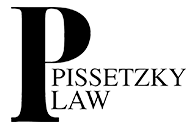
WE ARE ALWAYS IN YOUR CORNER
drug crimes
Chicago Drug Crimes Attorney
Call (844) 668-4258 for a Case Evaluation
At Pissetzky Law LLC, our Chicago drug crime lawyers have skillfully represented clients in federal and state courts around the country. If you have been accused of a serious drug offense in Illinois and you want to assert your right to a trial, then we are the Chicago criminal defense firm you’re looking for. Whatever type of drug charge you face, we are ready to fight for your not-guilty verdict.
From Gal's interview for the Masters of the Courtroom series on ReelLawyers.com.
Why Choose Our Chicago Drug Lawyers?
- Over 20 years’ Powerhouse Advocacy
- In National Trial Lawyers: Top 100
- Named in Illinois Super Lawyer® Rising Stars℠
- Cases Argued before the Illinois Supreme Court, multiple Illinois Appellate Courts, and Deferral Courts Nationwide
- Proven Record of Not-Guilty Verdicts and Dismissed Cases
With a former prosecutor on our team, we have invaluable insights into how to counter the government’s every move. As nationally recognized defenders, we offer the high-caliber advocacy you deserve. Don’t hesitate to discover what your possible defenses are.
Request your criminal case review online or call (844) 668-4258 to start getting the answers you need. Se habla español. Mówimy po polsku.
No case is too complex for us. Our Chicago drug crime lawyers take on drug cases involving and not limited to:
- Marijuana
- Cocaine
- Ecstasy / MDMA
- Heroin
- LSD
- Methamphetamine
- Morphine
- Peyote
Why Choose US?
We are Always In your corner
-
IN THE NATIONAL TRIAL LAWYERS: TOP 100
-
ILLINOIS SUPER LAWYERS®
-
10.0 OUT OF 10.0 SUPERB AVVO RATING
-
NOT-GUILTY VERDICTS & CASE DISMISSALS
-
OVER 20 YEARS OF TRIAL-TESTED DEFENSE
Talk to a Chicago Drug Attorney Today
Criminal penalties related to a drug crime conviction will be severe. Imprisonment can range from a year to a life sentence. Fines usually start in the several thousands of dollars but could reach millions depending on the scale of the narcotics seized. A person must act quickly in order to protect their name and future freedoms from destruction at the unforgiving hands of the law.
Ready to Protect Your Future Today
With more than 20 years of criminal defense experience handling complex criminal cases—some argued before the Illinois Supreme Court—we are a group of intelligent and skilled litigators who are ready to up against federal and state prosecutors. Our Chicago drug crime defense attorneys can thoroughly evaluate your drug crimes case and determine all of your legal options to get the best results available.
Contact us online or at (844) 668-4258 today to schedule a drug case evaluation with our Chicago drug crime lawyer.
Legal Advocates Ready for Any Challenge
If you are charged with drug trafficking a controlled substance, this charge is virtually always a Class X felony, just one category short of first-degree murder, rendering you ineligible for probation. When you face serious drug charges that threaten your entire future, you urgently need the powerhouse criminal defense that we offer. Contact Pissetzky Law LLC today to see what our award-winning Chicago criminal defense lawyers can achieve for you.
Facing charges for a drug crime? Call (844) 668-4258 or email us now to schedule your criminal case evaluation.
Penalties for Drug Crimes in Illinois
In the state of Illinois, if you are facing drug charges you can receive severe penalties. If convicted, you are facing years in prison, possibly even decades, along with steep fines. You need fierce, battle-ready advocates like the team at Pissetzky Law LLC if you want to avoid the maximum penalties.
How long do you go to jail for drug possession in Illinois?
In Illinois, the amount of jail time that you can face for drug possession largely depends on the type and amount of drug that is found in your possession.
Possible drug possession charges and jail time include:
- Class 1 felony (morphine, cocaine, LSD, heroin and hallucinogenic substances): punishable by four to 50 years’ incarceration
- Class 1 felony (barbituric acid, peyote, and amphetamine): punishable by 4 to 15 years’ incarceration
- Class 1 felony (methaqualone, pentazocine, PCP and ketamine): punishable by four to 15 years’ incarceration
- Class 1 felony (more than 200 grams of any other Schedule I or II narcotics): punishable by four to 15 years’ incarceration
- Class 4 felony (any other amount of Schedule I or II narcotic not previously mentioned): punishable by one to three years’ incarceration
- Class C misdemeanor (first offense): punishable by up to six months’ incarceration
- Class B misdemeanor (second offense): punishable by up to six months’ incarceration
Unlawful Prescription of Opiates
Doctors are obligated to provide medical treatment that will benefit and cure their patients, respect the life of all human beings, and not intentionally harm those under their care. When it comes to liability, physicians are generally given leeway to encourage them to perform healing or life-saving measures. Although doctors are liable for monetary damages when they make mistakes, there has been an increasing number of criminal cases brought against them in criminal court as a result of the opioid crisis.
At Pissetzky Law LLC, we are committed to helping all doctors, pharmacists, dentists, and other healthcare providers being investigated or charged with unlawful prescribing or dispensing of opiates. Our Chicago drug crimes attorneys have a comprehensive understanding of federal and state law to guide you through the complexities of your case and build an effective defense strategy to protect your rights and future.
What Are the Crimes Associated with Unlawful Opiate Prescription?
Due to the widespread abuse of opiates throughout the United States, federal agencies such as the Department of Justice (DOJ) and the Drug Enforcement Administration (DEA) have heavily targeted medical professionals that prescribe and dispense narcotic medications. When the DEA, for example, investigates a medical practice, clinic or pharmacy, the aim is to obtain evidence of issuing false prescriptions (through forgery or other means), using drug shorting and refill schemes, prescribing more than necessary, falsifying patient records, or even selling fraudulent prescriptions.
Under certain federal statues (i.e. Controlled Substance Act (CSA), False Claims Act (FCA), Anti-Kickback Statute and Stark Law), federal agencies have the jurisdiction to investigate healthcare providers for prescription drug fraud. Federal penalties for prescription drug fraud involving narcotic medications can include incarceration, costly fines, exorbitant damages, and loss of licensure.
If unlawful prescription resulted in the death of a patient in Illinois, the state could also seek criminal charges. These include charges such as manslaughter, or even murder via drug-induced homicide in some criminal cases.
When Does Drug Dealing Becomes Federal Drug Trafficking?
It is a drug crime to sell, distribute, or otherwise handle any illegal narcotic, or to use a legal drug in any way deemed illegal. However, there are circumstances that can elevate a drug crime from a state-level issue to a federal crime. In particular, at a certain point, most drug crimes can constitute the federal crime of drug trafficking if requirements are fulfilled.
Creating, moving, selling, or handling drugs can be drug trafficking depending on these factors:
- Amount, weight, or measurements: The primary factor law enforcement agents – specifically Drug Enforcement Administration (DEA) agents – will consider when determining if a suspect can be charged with the federal crime of drug trafficking is how much of a drug is found in a person’s possession. If a suspect has drugs in amounts well beyond what an individual would need for individual use, it may trigger federal charges.
- Potential value: The DEA and Federal Bureau of Investigation (FBI) tries to keep on top of the average sale price of a certain amount of each type of common “street level” drug. A suspect found to have enough of a substance that could potentially fetch a high price if sold may be labeled a drug trafficker.
- Presentation or storage: Drug trafficking is generally considered a more professional form of drug distribution. Investigators tend to look for signs of thoughtful presentation or careful storage of narcotics to determine if it is linked to a drug trafficking ring.
- Affiliations: A person’s known affiliations and accomplices can also escalate a drug crime to a federal drug crime. For example, if the son of a known criminal boss is arrested with cocaine in his possession, it might be assumed he was participating in drug trafficking to some degree.
- State lines: A drug crime or a string of drug crimes that take place in more than one state will generally be considered federal drug trafficking, no matter how small in scale the crime. This is true of most crimes as well.
-
People v. GE
Finding of Not Guilty! GE was charged with possession with intent to deliver a kilogram of heroine, a class X felony ...
-
People v. JS
Charged with attempted murder and aggravated discharge of a firearm. Mr. Pissetzky and another attorney pushed the case ...
-
Motion Granted, Case Dismissed
People v. RMC – Chicago police officers received information that a 2 kilo cocaine deal was going to happen in a garage. ...
-
Motion to Suppress Heroin Granted
People v. AP – After Chicago Police officers walked up to AP after he parked his car, they searched him and the car and ...
-
Motion Granted Case Dismissed
People v. RW – RW was charged with a Class X Felony of Possession with Intent to Deliver Marijuana. Chicago Police ...
-
People v. KS – Not Guilty
Mr. KS was charged with aggravated battery to 2 Chicago Police officers and with resisting arrest. 3 Chicago Police ...
Contact Us
Ready to Get Started? Contact us todayto speak to a member of our team.


